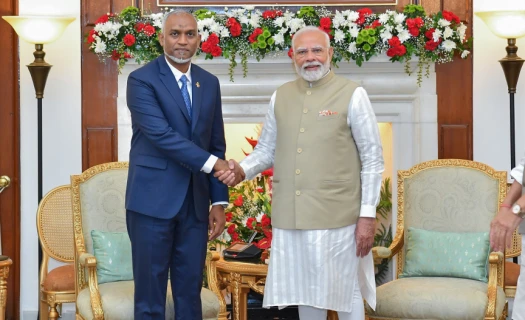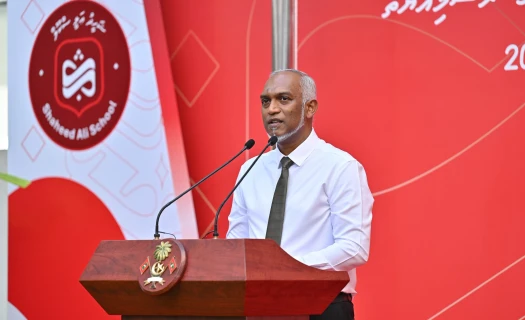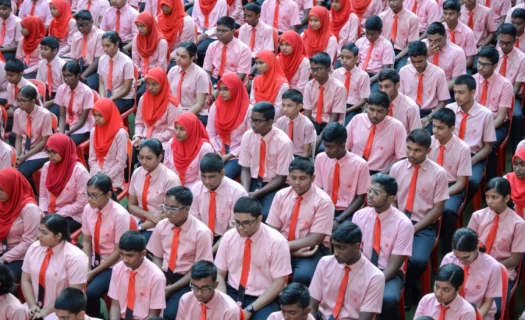Tue, 27 Jan 2026
|DHIVEHI
President reaffirms Maldives' commitment to social justice and sustainability
20 Feb 2025
|

Photo: The President's Office
On the World Day of Social Justice, President Dr Mohamed Muizzu shared a message reaffirming the Maldives' strong commitment to fairness, equality, and sustainability.
He emphasised the need to promote social equity while advancing economic growth and environmental resilience, ensuring alignment with both national priorities and global goals.
The theme of this year's observance, "Strengthening a Just Transition for a Sustainable Future," holds particular significance for the Maldives, a small island developing state acutely vulnerable to climate change.
A milestone in the Maldives' dedication to social justice was its accession to the Global Coalition for Social Justice in July 2024. Through this partnership, the country seeks to enhance societal resilience, foster inclusive policy coherence, and promote dialogue to advance shared prosperity. This commitment is reflected in the Government's comprehensive efforts to transform the nation's economic and developmental trajectory.
Central to these efforts is the development of Ras Malé, an eco-friendly urban centre designed to set new sustainability benchmarks while addressing critical housing and economic needs.
President Dr Muizzu emphasised that this project represents the Government's broader ambition to integrate environmental sustainability with economic expansion, particularly given the Maldives' vulnerability to climate change. The development of Ras Malé, along with other urban centres, is expected to strengthen economic opportunities and improve living standards across the nation's geographically dispersed islands.
A just transition towards a low-carbon economy is a key priority for the Government. To this end, the Maldives has set a target of increasing renewable energy sources to 33 per cent by 2028, guided by the Energy Roadmap 2024-2033. These efforts aim to reduce dependency on fossil fuels, enhance energy security, and establish a foundation for long-term sustainability.
The transition is designed to be inclusive, ensuring that all citizens—particularly vulnerable groups such as women, persons with disabilities, youth, and the elderly—benefit from these initiatives. Policies are being implemented across economic, environmental, educational, and labour sectors to empower micro, small, and medium enterprises (MSMEs), workers, investors, and consumers in shaping an inclusive and environmentally sustainable economy.
Equally crucial is the strengthening of social protection systems to safeguard communities from economic and environmental challenges. The Government is committed to implementing community-driven governance models, integrating modern technologies with traditional and indigenous knowledge to develop decentralised, locally tailored solutions. This approach is expected to foster a smart, secure, and sustainable future for all Maldivians.
President Dr Muizzu concluded his message by calling for national unity, emphasising the importance of reviving the Maldivian tradition of social cohesion and collective responsibility. He stressed that the realisation of a just and sustainable future requires collaborative effort, drawing upon lessons from the past to build a stronger and more equitable society.








